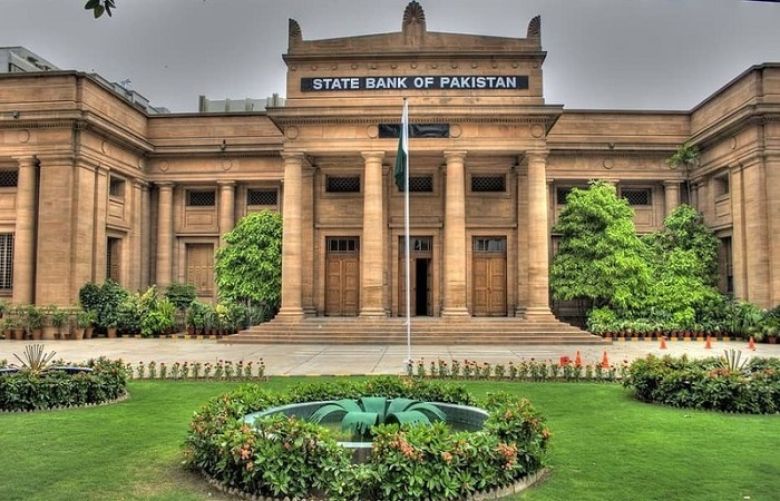The State Bank of Pakistan (SBP) has decided to hike the policy rate by 100 basis points (bps) to 21 per cent, its highest-ever level, according to a press release issued on Tuesday.
The announcement came after a meeting of the bank’s Monetary Policy Committee (MPC).
“The MPC noted that inflation in March 2023 rose further to 35.4pc, and is expected to remain high in the near term. However, there are early indications of inflation expectations plateauing, albeit at an elevated level,” a press release issued by the central bank said.
The press release said that the MPC viewed today’s decision as an “important step towards anchoring inflation expectations around the medium-term target, which is critical for achieving the objective of price stability”.
The committee further observed that Pakistan’s financial sector “remains broadly resilient, while economic activity continues to moderate”.
The press release said that the committee had noted three important developments that had implications on the macroeconomic outlook.
“First, the current account deficit has narrowed considerably, more than previously anticipated, mainly on the back of sizable import containment. Nonetheless, the overall balance of payments position continues to remain under stress, with foreign exchange reserves still at low levels,” the press release said.
“Second, significant progress has been made towards completion of the ninth review under the International Monetary Fund’s (IMF) Extended Fund Facility (EFF) programme.
“Third, recent strains in the global banking system have led to further tightening of global liquidity and financial conditions. These have added to the difficulties of emerging market economies like Pakistan to access international capital markets,” the statement said.
As a result, the central bank said that the MPC considered the current monetary policy stance “appropriate” while also stressing that the decision, along with previous monetary tightening, would help achieve the medium-term inflation target over the next eight quarters.
“However, the committee noted that uncertainties attached with the global financial conditions as well as the domestic political situation, pose risks to this assessment,” the statement said.
The committee noted that incoming data on economic activity continued to reflect a “broad-based slowdown”, adding that there had been a significant decline in sales volumes of automobiles and petroleum products in recent months.
The MPC also noted that in February, the current account saw a deficit of only $74 million and the cumulative deficit now stood at $3.9 billion in Jul-Feb FY23, about 68pc lower from the same period last year.
“This mainly reflects the contraction in imports, which continues to outweigh the combined decline in remittances and exports,” the press release said, adding that workers’ remittances had slightly recovered on a month-on-month basis in Feb and the momentum was expected to continue.
“However, despite the lower current account deficit, higher loan repayments relative to disbursements are keeping the foreign exchange reserves under pressure. Thus, the committee reemphasised that the early conclusion of the ninth review under the IMF programme is critical to rebuild the FX reserve buffers.”
The committee was of the opinion that fiscal outcome during Jul-Jan FY23 had been “encouraging” in the context of achieving macroeconomic stability. It noted that delivering the “envisaged fiscal consolidation” was important to complement the ongoing monetary tightening in order to achieve price stability.







